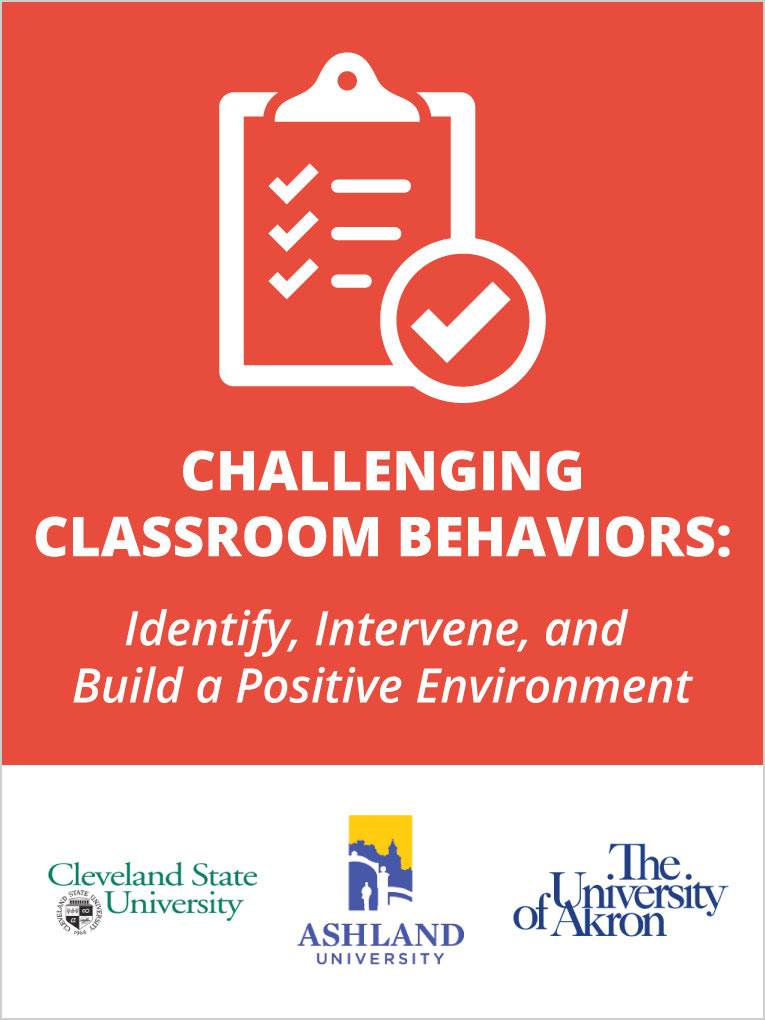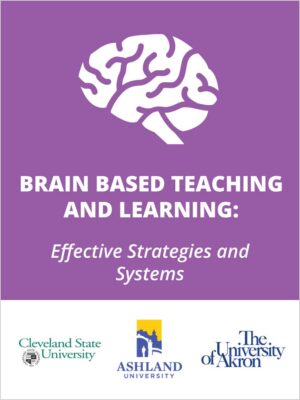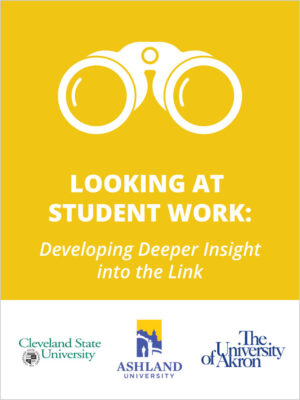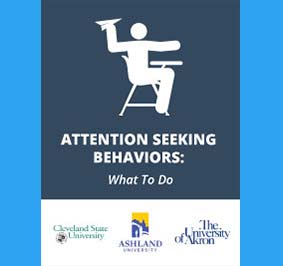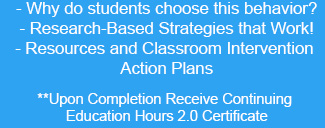Course Description
Participants will gain skills and knowledge in providing interventions for common classroom discipline problem areas of attention-seeking behavior, power-seeking behavior, revenge-seeking behavior and avoidance of failure behaviors.
Techniques to identify each type of behavior and a comprehensive collection of interventions strategies will be shared. Dozens of strategies to build a positive classroom environment/climate and strategies to improve communication with parents will be presented.
Course Reviews:
“I would definitely recommend this course. It really made me take a look at the students that I work with. I reconsidered what the goals of their behaviors might be, and it opened my eyes to new approaches to try. From the first video we watched, I wanted to change how I reacted to certain situations. Many of the strategies we learned about could not only be used in the classroom but also in my home. It doesn’t matter if you are a new teacher or an experienced one, you will take something away from this course.”
Kelly P. – Milwaukee, WI
“Changing Classroom Behaviors is an online course I recently completed. It was one of the best classes I have taken in a longtime. There were a variety of readings by Linda Albert (Cooperative Discipline), videos by Steven Covey, as well as a few others. So much of the content was real life and easily applicable in day to day teaching and home life. I was so drawn to Albert’s information about attention seeking behaviors that I made copies of her articles for colleagues. One day I even found myself quoting Steven Covey’s 90/10 Principle to my students at lunch. If that wasn’t enough, I found myself giving another teacher permission to give herself a time-out in class when she got frustrated by the attention seeking student who was thriving on his/her audience’s attention. So much good has come from taking this class! It was definitely a good one. Look into the possibilities of taking it yourself.”
Ellen M. – Milwaukee, WI
“I definitely would recommend this class to all teachers. Even teachers with excellent classroom management skills should take this class. All educators should view all students as individuals if they don’t already. Children are similar to adults in that each has different lifestyles and life experiences that play a part in how and why they behave a certain way. This class has enlightened me of how not to lose sight of why some of my students behave a certain way and how it is my job to help them in any way I can. I feel more confident and prepared that I have a solid understanding of the most effective ways of helping my students.”
Charmaine K. – Big Bend, WI
“Challenging Classroom Behaviors is an online course that is worth taking no matter if you are an experience teacher or a beginning teacher. For the experienced teacher, it will remind you of strategies that you may have used in the past that you haven’t thought about in a while. For the beginning teacher, it will give a wealth of strategies to try as you encounter different challenging behaviors in your career. I have already recommended the course to many of my colleagues.”
Natalie H. – Dodgeville, WI
I chose to take a class called Challenging Classroom Behaviors, and I am glad I did. I am now able to recognize the reasons behind difficult student behaviors, such as attention-seeking, revenge-seeking, power-seeking, and resistance to learning. The class was relevant and interesting, and I enjoyed reading about my classmates’ experiences and applications. I often found myself referring to the content at work during the class, which is a good sign to me.”
Andrea V. – Onalaska, WI
“There is one compelling point that I would make in recommending this class. Children are coming into our classrooms with a variety of experiences and backgrounds, unfortunately, not all of them positive. One of the biggest impacts I can make as a teacher, is to help them learn how to handle struggles and challenges and to have confidence in themselves. This class has taught me some new strategies not only how to handle some challenging behaviors, but how to help children learn to take a positive role in their classroom and beyond.”
Jeannette A. – Waukesha, WI

